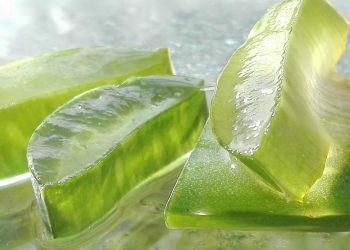Have you ever experienced that uncomfortable feeling when your gums are swollen? It can be painful and downright annoying, making even the simplest tasks like eating or brushing your teeth feel like a chore. You’re not alone. Many people deal with gum swelling at some point in their lives, often due to factors like poor dental hygiene, gum disease, or even just stress. Fortunately, there are several soothing rinses that can help alleviate that discomfort and promote healing. Let’s dive into five effective options, complete with tips, pros and cons, and a bit of science behind them!
Contents
1. Warm Salt Water Rinse
The Classic Solution
Let’s start with the tried-and-true method: warm salt water. This rinse is often the go-to for many dental issues, including gum swelling. The salt helps reduce inflammation and can even draw out excess fluid from swollen tissues.
How to Make It:
- Mix about 1 teaspoon of salt in a cup of warm water.
- Swish it around in your mouth for about 30 seconds, then spit it out. Repeat a few times a day.
Pros and Cons
Pros:
- Inexpensive and easy to make.
- Salt has natural antibacterial properties.
Cons:
- It can be a bit harsh if you have open wounds in your mouth.
- Some people find the taste unappealing.
A Personal Touch
I’ve noticed that a warm salt water rinse can feel almost like a mini spa treatment for my mouth. It’s comforting, and the warmth can help soothe the area. Just be cautious if you have cuts; it might sting a bit!
2. Baking Soda Rinse
The Multi-Tasking Wonder
Baking soda is another household staple that can help with gum swelling. Its alkaline properties can neutralize acids in the mouth, which may contribute to inflammation.
How to Make It:
- Mix 1 teaspoon of baking soda in a cup of warm water.
- Swish for about 30 seconds and spit it out. You can do this rinse once or twice a day.
Pros and Cons
Pros:
- Baking soda can help balance pH levels in the mouth.
- It’s also effective in freshening breath.
Cons:
- Overuse can lead to an imbalance in your mouth’s natural flora.
- Some might find it too abrasive if used frequently.
A Word of Caution
While baking soda is generally safe, it’s essential to use it in moderation. Too much can disrupt your oral microbiome, leading to other issues.
3. Chamomile Tea Rinse
The Calming Herbal Option
Chamomile isn’t just for bedtime anymore! This herb is known for its anti-inflammatory properties and can provide soothing relief for swollen gums.
How to Make It:
- Brew a cup of chamomile tea and let it cool down.
- Swish it around in your mouth for 30 seconds before spitting it out. You can use this rinse a few times a day.
Pros and Cons
Pros:
- Chamomile has natural anti-inflammatory and calming properties.
- It can be a pleasant, soothing experience.
Cons:
- Some people may be allergic to chamomile.
- It may not be as effective for severe inflammation.
A Soothing Ritual
I love sipping chamomile tea, and using it as a rinse feels like a double win—relaxing and healing at the same time. Just be cautious if you have allergies!
4. Hydrogen Peroxide Rinse
The Disinfecting Powerhouse
Hydrogen peroxide is often used for its antiseptic properties and can be effective in reducing gum swelling and fighting bacteria.
How to Make It:
- Mix equal parts of 3% hydrogen peroxide and water.
- Swish it around in your mouth for about 30 seconds and spit. Limit this to a few times a week.
Pros and Cons
Pros:
- It helps kill bacteria and can promote healing.
- It’s readily available at most pharmacies.
Cons:
- Overuse can lead to irritation of the gums.
- It may not be suitable for everyone, especially those with sensitive gums.
Use with Caution
I’ve used hydrogen peroxide in the past, and while it’s effective, I always make sure not to overdo it. A little goes a long way!
5. Aloe Vera Rinse
The Natural Healer
Aloe vera is known for its soothing properties, and it can be just as effective for your gums as it is for sunburns. This natural remedy can help reduce inflammation and promote healing.
How to Make It:
- Mix 1 tablespoon of aloe vera juice with a cup of water.
- Swish it in your mouth for about 30 seconds and spit it out. You can use this rinse daily.
Pros and Cons
Pros:
- Aloe vera has natural anti-inflammatory and healing properties.
- It’s gentle and usually well-tolerated.
Cons:
- Some aloe vera products may contain additives that aren’t suitable for oral use.
- It may not be as effective for severe cases.
A Gentle Option
I find that using aloe vera feels like a gentle hug for my gums. It’s refreshing, and the taste isn’t overpowering at all.
FAQs
1. How often should I use these rinses?
Most rinses can be used 2-3 times a day, but always listen to your body. If something feels irritating, cut back.
2. Can I use these rinses if I have braces?
Yes, these rinses are generally safe for people with braces, but be cautious with hydrogen peroxide. Always consult your orthodontist if you’re unsure.
3. What should I do if my gum swelling persists?
If swelling continues for more than a few days, it’s wise to consult a dentist. Persistent swelling can indicate gum disease or other issues.
4. Are these rinses a substitute for dental care?
No, these rinses can help soothe symptoms but shouldn’t replace regular dental hygiene practices like brushing and flossing.
Conclusion
Dealing with swollen gums can be a hassle, but finding relief doesn’t have to be complicated. From warm salt water to the soothing properties of chamomile and aloe vera, there are plenty of options to explore. Remember, though, that while these rinses can provide relief, they are not a substitute for professional dental care. If symptoms persist, don’t hesitate to reach out to your dentist.
So here’s my parting thought: taking care of your gums is just as important as taking care of the rest of your body. A little self-care can go a long way in maintaining your overall health!
Disclaimer: This article is for educational purposes only and is not a substitute for professional medical advice. Always consult a qualified healthcare provider before making changes to your health routine.
References
- Mayo Clinic. (n.d.). “Gum disease.” Retrieved from https://www.mayoclinic.org/diseases-conditions/gum-disease/symptoms-causes/syc-20340671
- National Institutes of Health. (2017). “Oral health: A window to your overall health.” Retrieved from https://www.nidcr.nih.gov/health-info/oral-health-overall-health
- Harvard Health Publishing. (2020). “The health benefits of salt.” Retrieved from https://www.health.harvard.edu/staying-healthy/the-health-benefits-of-salt
Get Your FREE Natural Health Guide!
Subscribe now and receive our exclusive ebook packed with natural health tips, practical wellness advice, and easy lifestyle changes — delivered straight to your inbox.














